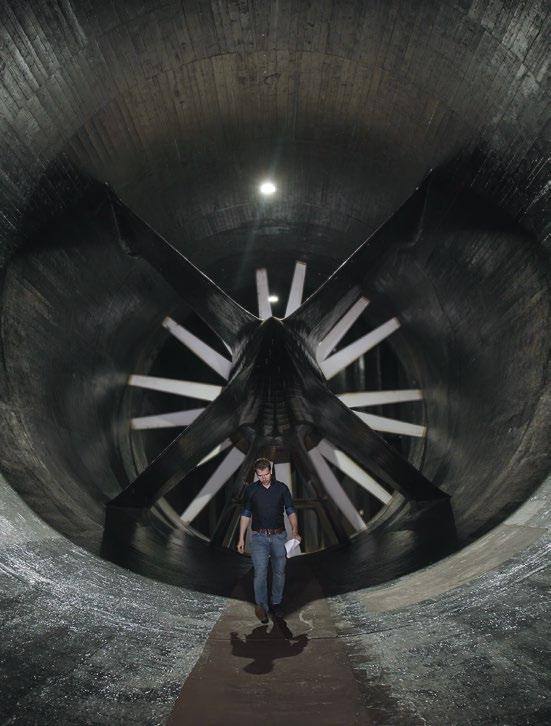
FH Zentralschweiz More information at hslu.ch/mse Engineering Master 2023/2024 Engineering and Architecture
Ihre Advisorin oder Ihr Advisor berät und unterstützt Sie während Ihres Studiums. Your advisor will personally advise and support you throughout your studies.
Die Vorlesungen finden mehrheitlich in Zürich direkt beim Hauptbahnhof statt. The majority of lectures take place in Zurich, directly by the main station.
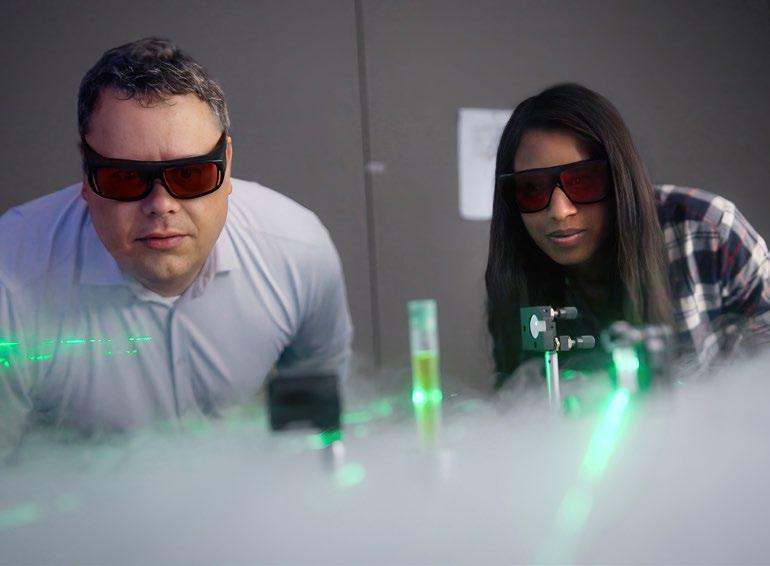
Engineering Master 2023/2024 2

Studienaufbau
Der Master of Science in Engineering ist ein zukunftsorientierter Studiengang, der sehr praxisorientiert ausgerichtet ist. Durch die Entscheidung für eines von elf Profilen, die individuelle Betreuung durch eine Advisorin bzw. einen Advisor sowie die Auswahl der Vorlesungsmodule kann der Studiengang an Ihre individuellen Bedürfnisse angepasst werden.
Der Unterricht in den Vorlesungsmodulen findet mehrheitlich in Zürich direkt beim Hauptbahnhof statt. Die Unterrichtssprache in den Vorlesungsmodulen ist Englisch, mit Ausnahme der Module im Profil Civil Enginee ring, welche in Deutsch unterrichtet werden. Die Projektmodule werden in Absprache mit der Advisorin oder dem Advisor in Englisch oder Deutsch durchgeführt.
Vor dem Studium – so bereiten Sie sich vor:
1. Wählen Sie Ihr Profil:
Building Technologies
Business Engineering
Civil Engineering Computer Science
– Data Science
– Electrical Engineering
Energy and Environment Mechanical Engineering
Mechatronics and Automation
Medical Engineering Photonics
2. Schlagen Sie eine Advisorin oder einen Advisor vor
Die Advisorin oder der Advisor begleitet Sie fachlich und organisatorisch durch Ihr Master-Studium, erarbeitet Forschungsfelder, betreut Sie in Projekten und beantwortet
Ihre Fragen. Auf unserer Website finden Sie eine aktuelle Liste mit allen Advisorinnen und Advisoren. hslu.ch/mse
3. Wählen Sie Ihre Module
Wählen Sie aus den über 140 verschiedenen Vorlesungsmodulen aus. Zusammen mit der Advisorin oder dem Advisor besprechen Sie diese Auswahl und legen die Inhalte und die Umsetzung der zwei Vertiefungsmodule und der Master-Thesis fest.
Das Studium – so schliessen Sie ab Um das Studium abzuschliessen, benötigen Sie 90 ECTS-Credits, die Sie in drei bis sieben Semestern im Vollzeit- oder Teilzeitmodus sammeln. Diese Credits erwerben Sie zu je einem Drittel in: den Vorlesungsmodulen zwei projektbasierten Vertiefungsmodulen der Master-Thesis
Ihre Möglichkeiten nach dem Studium Nach dem erfolgreichen Abschluss können Sie in der Forschung arbeiten oder eine leitende Position in der Wirtschaft über nehmen. Als Projektleiterin oder Produkt manager profitieren Sie vom praxisbezoge nen Wissen aus dem Studium, welches Ihnen ermöglicht, in der Berufswelt schnell aufzusteigen.
4
Program structure
The Master of Science in Engineering is a future-oriented degree program with a practical focus. The opportunity to select one of eleven specializations, individual supervision by an advisor and a range of lecture modules to choose from enable you to tailor the program to your individual needs.
Lectures mostly take place at Zurich, directly by the main station. The language of instruction in the lecture modules is English except for the modules in the Civil Engineering specialization, which are taught in German. The project modules are carried out in English or German in agreement with the advisor.
Your preparation for the study program:
1. Choose your specialization:
– Building Technologies
– Business Engineering
Civil Engineering
Computer Science
Data Science
Electrical Engineering Energy and Environment
– Mechanical Engineering
Mechatronics and Automation
Medical Engineering Photonics
2. Nominate your advisor
The role of your advisor is to offer specialist and organizational supervision throughout your degree program, to develop fields of research and to support you in your project work. Visit our website for the current list of advisors. hslu.ch/mse
3. Choose your modules
Select from over 140 available lecture modules. Discuss your choice with your advisor and jointly determine the content and implementation of the two specialization projects and the master thesis.
How to complete your degree program
You will need to collect 90 ECTS credits over the course of three to seven semesters to complete your program – either on a part-time or on a full-time basis. The credits will be awarded in equal parts in the following three areas:
Lecture modules
– Two professional specialization projects
Master thesis
Your options after completing your degree program
After successfully completing your degree program you can either become a researcher in your field or assume a leading position in the business sector. As a project or product manager, you will benefit from the practice centered skills taught in the program; for instance, they will likely allow you to progress in your career quickly.
Haben Sie Fragen?
Do you have any questions?
Prof. Dr. Sascha Götte
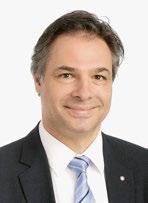
Studiengangleiter MSE
Head of MSE program
T +41 41 349 35 24
sascha.goette@hslu.ch
5
Das 90-ECTS-Studium ist dreiteilig aufgebaut und besteht aus:
– zehn Vorlesungsmodulen (30 ECTSCredits)
Diese Module vermitteln vertiefte Theoriekenntnisse und fachspezifisches Wissen. Sie finden eine Übersicht aller Vorlesungsmodule auf msengineering.ch
zwei projektorientierten Vertiefungs modulen (30 ECTS-Credits)
Die Projekte finden an der Hochschule Luzern im Bereich der anwendungsorien tierten Forschung und Entwicklung statt. Auch Projektarbeiten mit einer Firma in Ihrem Umfeld können berücksichtigt werden. Ergänzende Veranstaltungen (EVAs) können unabhängig von Ihren Projektarbeiten besucht und angerechnet werden.
– Master-Thesis (30 ECTS-Credits) Krönender Abschluss in Projektbearbei tung und wissenschaftlichem Arbeiten.
Mit dem optionalen Besuch von sogenann ten Ergänzenden Veranstaltungen (EVAs) können Sie den Umfang der beiden Vertiefungsmodule verringern. Diese EVAs bieten Ihnen die Möglichkeit, sich in Kleingruppen in spezifischen Themen zu spezialisieren.
Vorlesungsmodule
Die Theoriemodule finden in Vorlesungs räumen an zentraler Lage neben dem Zürcher Hauptbahnhof statt. Bei Interesse können Sie die Module teilweise auch in Lausanne oder Lugano besuchen. Für jedes Theoriemodul erhalten Sie 3 ECTS-Credits. Diese teilen sich in die folgenden drei Kategorien auf:
– Technisch-wissenschaftliche Vertiefung (TSM):
In diesen Modulen wird spezifisches Know-how aus dem jeweiligen Profil vermittelt. Erforderlich sind mindestens 12 ECTS-Credits.
Erweiterte theoretische Grundlagen (FTP): Diese Module vermitteln vertieftes Wissen in Grundlagenthemen. Erforder lich sind mindestens 9 ECTS-Credits.
– Kontextmodule (CM):
Nichttechnische Module, die beispielsweise Inhalte aus Betriebsökonomie, Ethik und Recht vermitteln. Erforderlich sind mindestens 6 ECTS-Credits.
6Engineering Studienaufbau
The 90 ECTS degree program consists of three parts:
– ten lecture modules (30 ECTS credits)
These modules teach advanced funda mentals and subject specific knowledge. Go to msengineering.ch to find an overview of all available lecture modules.
– two professional specialization projects (30 ECTS credits)
The projects take place at Lucerne University of Applied Sciences and Arts within the field of applied research and development. This may also include projects from companies within your professional area. Supplementary lectures (EVAs) can be attended independently from your project work.
master thesis (30 ECTS credits)
Consolidation of project management and academic work.
You can reduce the required scope of your specialization projects by attending noncompulsory supplementary lectures (EVAs). EVAs offer the opportunity to acquire specific specialist knowledge in a small group setting.
Program structure
Vorlesungsmodule (30 ECTS-Credits)
Lecture modules (30 ECTS credits)
Technisch-wissenschaftliche Vertiefung (12 15 ECTS)
Technical scientific specialization (12 15 ECTS)
Erweiterte theoretische Grundlagen (9 12 ECTS)
Fundamental theoretical principles (9 12 ECTS)
Kontextmodule (6 9 ECTS)
Context modules (6 9 ECTS)
Lecture modules
The theory modules are taught at a central location. The lecture rooms are located at Zurich, next to the main station. If you are interested, you may also visit some of the modules at Lausanne or Lugano. You will be awarded 3 ECTS credits for each theory module. These lecture modules are divided into the following three categories:
Technical scientific specialization (TSM)
Modules taught in the area of the relevant specialization. Minimum requirement: 12 ECTS credits.
– Fundamental theoretical principles (FTP)
These lectures provide in-depth knowledge of fundamental theoretical principles. Minimum requirement: 9 ECTS credits.
Context modules (CM)
Non-technical modules focusing on other aspects, e.g. business, ethics and law. Minimum requirement: 6 ECTS credits.
Projektmodule (60 ECTS-Credits)
Project modules (60 ECTS credits)
Fachliche Vertiefung (30 ECTS)
– Vertiefungsmodul 1 (12 ECTS)
– Vertiefungsmodul 2 (18 ECTS)
– Ergänzende Veranstaltungen (je 3 ECTS)
Professional specialization (30 ECTS)
– Specialization project 1 (12 ECTS)
– Specialization project 2 (18 ECTS)
– Supplementary lectures (3 ECTS each)
Master-Thesis (30 ECTS)
Master thesis (30 ECTS)
7Engineering
Projektarbeiten
Project assignments
Im Master of Science in Engineering besuchen Sie zwei Vertiefungsmodule und bearbeiten die Master-Thesis. Für diese individuellen Projekte erhalten Sie total 60 ECTS-Credits.
Über die Inhalte der Projekte entscheiden Sie gemeinsam mit Ihrer Advisorin oder Ihrem Advisor. Es können drei voneinander unabhängige Themen sein oder ein übergreifendes Projekt, das in der Master-Thesis seinen Abschluss findet. Es ist möglich, dass Sie diese Projekte in Kooperation mit einer Firma oder einer Forschungsgruppe der Hochschule Luzern – Technik & Architektur durchführen.
Sofern Sie gerne eine Studie mit Ihrem Arbeitgeber durchführen möchten, unter stützen wir Sie mit unserem Betreuungs angebot und der Infrastruktur. Auf dem Campus Horw können Sie Materialien und Prozesse vor Ort testen, die Resultate auswerten und vom Wissen unserer Mit arbeiterinnen und Mitarbeiter profitieren.
Dank der engen Betreuung durch Ihre Advisorin oder Ihren Advisor können Sie in regelmässigen Besprechungen Ihre Ansätze und die weiteren Schritte besprechen. So werden Sie nicht nur im Schreibprozess unterstützt, sondern profitieren auch vom Netzwerk und Know-how Ihrer Betreuerin oder Ihres Betreuers.
In the framework of the Master of Science in Engineering program, you will be required to complete two specialization projects and a master thesis, which are in total worth 60 ECTS credits.
You will determine the subject of your projects in collaboration with your advisor. You may select three independent topics or initiate one overarching project, which will come to its conclusion in your master thesis. You may also complete these projects in collaboration with a business partner or a research group at the Lucerne School of Engineering and Architecture.
If you wish to conduct a study with your employer, you will be able to benefit from our supervision and infrastructure, to test materials and processes, analyze results and harness the skills and knowledge of our staff on site on our Horw campus.
Thanks to the close support of your advisor, you will have the opportunity to discuss your approaches and next steps in regular meetings. This will not only help you in the writing process, but you will also benefit from the network and expertise of your supervisor.
Verwirklichen Sie Ihre Ideen und lernen Sie aus der Praxis. Realize your ideas and learn from practice.
8
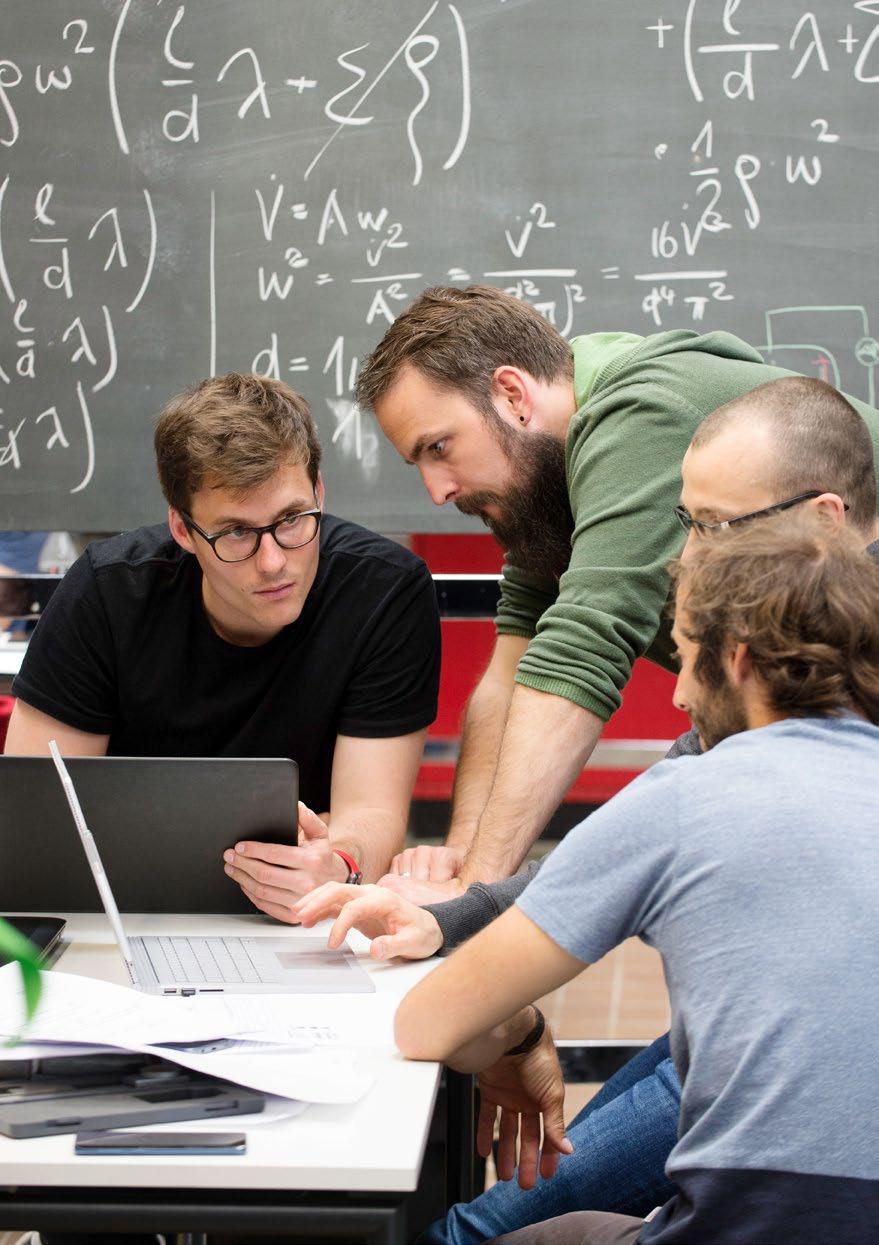
Profil
Building Technologies
Building Technologies Profile
Im Profil Building Technologies vertiefen Sie Ihr Wissen rund um thermische und elektri sche Gebäudetechniksysteme, Gebäudeautomation und -information sowie Gebäudeklimatologie. Sie eignen sich vertiefende und ergänzende Kompetenzen zur dezentra len und modularen Energieversorgung und -speicherung, zu thermischen und elektri schen Versorgungsnetzen (Energy Hub und Micro Grids) sowie zu Lebenszyklusanalysen von Stoffflüssen (CO2) und Materialressour cen (Circular Economy) an. Es werden Kompetenzen vermittelt für den Entwurf von systematisch-ganzheitlichen Lösungen im Bereich Gebäudetechnik und für deren architektonische und strukturelle Integration.
Sie erlangen Kompetenzen in Bereichen fort geschrittener Methoden der gebäudebezo genen Thermodynamik, Hydraulik, Automa tion und Elektrotechnik für transiente Leistungs- und Energieanforderungen. Es werden systemisch-konstruktive Wechsel wirkungen zwischen Aussenklima, Bau und Nutzenden sowie zukünftige Herausforde rungen im Zusammenhang mit dem Klimawandel und seinen Auswirkungen thematisiert. Die simulationsbasierte Optimierung synergetischer Gesamtkon zepte einschliesslich Gebäudeautomationsund Informationsaspekte wie IoT, prädiktive und algorithmenbasierte Steuer- und Regelsysteme sowie die Entwicklung anspruchsvoller, nachhaltiger und eleganter Heiz-, Kühl- und Elektrokonzepte und deren Umsetzung können erlernt werden.
In the Building Technologies specialization, you will deepen your knowledge of thermal and electrical building technology systems, building automation and information, and building climatology. You will acquire complementary skills in decentralized and modular energy supply and storage, thermal and electrical supply networks (energy hubs and micro grids) as well as life cycle analyses of material flows (CO2) and material resources (circular economy). Competencies are imparted for the design of systematic, holistic solutions in the field of building services engineering and their architectural and structural integration. You acquire skills and knowledge in advanced methods of building-related thermodynamics, hydraulics, automation and electrical engineering for transient performance and energy requirements. Systemic-constructive interactions between external climate, building and users as well as future challenges in connection with climate change and its effects are discussed. Simulation-based optimization for synergetic overall concepts including building automation and information aspects such as IoT, predictive and algorithm-based control systems; the development of sophisticated, sustainable and elegant heating, cooling and electrical concepts and their implementation may be learned.
10
Beispiele von Vorlesungsmodulen im Profil
Building Technologies sind:
– Numerical Methods for Building Engineering Smart Systems for Building Heat Transfer
Die vielfältige Laborinfrastruktur und diverse Prüfstände bieten die Möglichkeit, Gelerntes vor Ort anzuwenden.
The diverse laboratory infrastructure and various test rigs offer the opportunity to apply theory in practice.
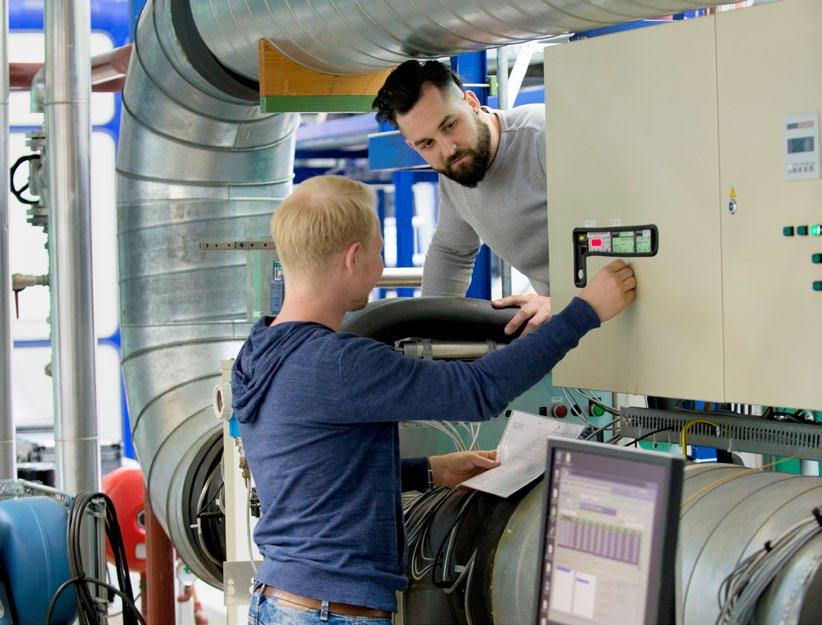
Typical examples of course modules in Building Technologies include:
– Numerical Methods for Building Engineering Smart Systems for Building Heat Transfer
11
Profil Business Engineering
Business Engineering Profile
In diesem Profil vertiefen Sie Ihre Kompe tenzen im Wirtschaftsingenieurwesen. Sie verknüpfen Wissen aus Engineering, Business und User-Centered Design. Dazu werden Märkte und Kundenbedürfnisse analysiert, um innovative Produkte, Dienst leistungen und Geschäftsmodelle zu konzipieren, die bei den Nutzerinnen und Nutzern ankommen. Anschliessend erfolgt die zielgerichtete Vermarktung. Sie können sich in verschiedenen Bereichen spezialisie ren – zum Beispiel im Produkt- und ServiceManagement, im Supply Chain Manage ment oder im Business Process Reengineering.
Dieses Profil ist auf viele verschiedene Märkte und Industrien ausgerichtet. Sie können sich in Ihren Vertiefungsmodulen entsprechend spezialisieren. Mögliche Themen sind zum Beispiel die Durchführung einer strategischen Analyse, die Verbesserung der Customer Experience, die Entwicklung eines Pricing-Modells, die Optimierung eines Produktionsprozesses oder die Entwick lung eines Businessplans für ein Start-up.
Dabei arbeiten Sie eng mit unseren Forschungszentren und externen Auftraggebern zusammen und erhalten so Einblicke in spannende Branchen und Technologien wie die Medizintechnik oder die Luft- und Raumfahrt.
Jedes Jahr finden mehrere Exkursionen und Anlässe mit externen Expertinnen und Experten statt. So können Sie auf unge zwungene Art Wissen von verschiedenen Fachpersonen erwerben und Ihr persönli ches Netzwerk erweitern.
In this specialization, you will deepen your Business Engineering expertise by combining Engineering, Business and User-Centered Design knowledge. In addition, you analyze markets and customer needs to develop innovative products, services and business models that are well-received by the customers. You will also learn how to market products and have the opportunity to specialize in a variety of areas such as Product and Service Management, Supply Chain Management or Business Process Reengineering.
This specialization applies to a wide range of markets and industries. You are able to select a specific area of expertise through your specialization projects. Possible topics include conducting a strategic analysis, improving the customer experience, developing a pricing model, optimizing a production process or developing a business plan for a startup.
In each case, you are able to collaborate with research centers and external clients and thus, gain insights into exciting markets and technologies such as Medical Engineering and Aerospace.
We organize several excursions and events with industry experts every year, thereby creating an informal learning environment and personal networking opportunities.
12
Beispiele von Vorlesungsmodulen im Profil
Business Engineering sind:

– Market Analysis and Forecasting
– Novel Innovation and Design Principles
Servitization of Manufacturing
Typical examples of course modules in Business Engineering include:
– Market Analysis and Forecasting
–
Novel Innovation and Design Principles
Servitization of Manufacturing
Interessiert an innovativen Herangehensweisen und einem breiten Netzwerk an Kontakten?
Interested in innovative approaches and a broad network of contacts?
13
Profil Civil Engineering
Sie erwerben relevante Fähigkeiten in verschiedenen Disziplinen, um Führungsauf gaben in Ingenieurbüros, Bauunternehmen oder in der Verwaltung zu übernehmen. Mögliche Tätigkeitsfelder sind Brückenbau, Hochbau, Geotechnik einschliesslich Tunnel- und Dammbau, Eisenbahn- und Strassenbau, Fluss- und Wasserbau, Instand haltung bestehender Ingenieurbauwerke, nachhaltiges und energieeffizientes Bauen, Naturgefahren und Gebäudehüllen. Darüber hinaus können Sie komplexe Fragestellun gen zu aktuellen und zukünftigen Heraus forderungen des Bauingenieurwesens bewältigen, anspruchsvolle Projekte mana gen und die Ergebnisse professionell vermitteln.
Sie können Ihre Kompetenzen in diversen Bereichen ausbauen, sei dies über Metho den in der Tragwerksanalyse sowie in Beton-, Stahl-, Verbund- und Holzkonstruktionen oder bei der Projektplanung und Überwachung von Strukturen und Massnah men der Geotechnik und von Naturgefah ren. Die Bewältigung aktueller und zukünfti ger Herausforderungen im Wasserbau und der Klimawandel mit seinen Auswirkungen wie etwa Überschwemmungen und Wassermangel werden thematisiert. Zudem gewinnen die Planung und das Manage ment des Verkehrs zunehmend an Bedeu tung. Das Profil Civil Engineering bereitet Sie darauf vor, sich dieser Themen zukünftig anzunehmen.
Im Bereich Gebäudehülle lernen Sie mithilfe moderner Methoden und Simulationstools Gebäudehüllen zu planen und zu konstruie ren, die den zukünftigen Energie
Civil Engineering Profile
You will acquire skills in various disciplines to assume senior positions in engineering firms, construction companies or public institutions. Potential fields of activity include bridge engineering, structural engineering, geotechnical engineering, including the disciplines of tunnel engineering and dam construction, railroad and road engineering, river engineering and hydraulic engineering, the maintenance of existing civil engineering structures, sustainable and energy-efficient construction mitigating, natural hazards and building envelopes. Furthermore, you will possess the skills to address complex current and future challenges in civil engineering, to manage demanding projects and to convey the results in a professional manner.
You will have the opportunity to develop your knowledge and hone your skills in various fields through methods applied in structural analysis as well as in concrete, steel, composite and timber construction or through project planning, monitoring of existing structures and through measures pertaining to geotechnical engineering and natural hazards. Current and future challenges relating to hydraulic engineering and climate change with the resulting effects ranging from floods to water scarcity are addressed. Another topic of increasing importance is traffic planning and management. The Civil Engineering specialization is ideally structured to prepare you for a career dedicated to addressing these issues.
In the discipline of building envelopes, you learn how to plan and construct building envelopes using modern methods and
14
anforderungen im Zusammenhang mit dem Klimawandel gerecht werden. Die Wechsel wirkung zwischen bauphysikalischen, energetischen, konstruktiven, baustatischen und architektonischen Anforderungen steht dabei im Fokus.
Beispiele von Vorlesungsmodulen im Profil Civil Engineering sind:
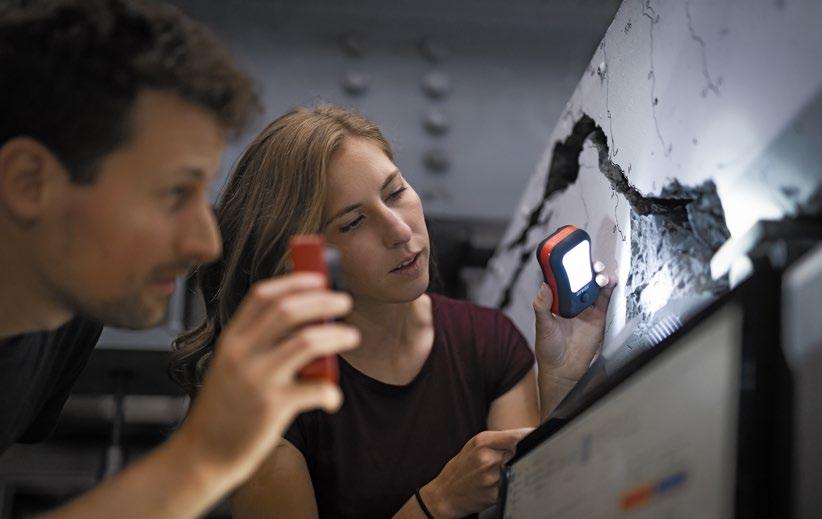
– Werkstoffmechanik und Plastizitätstheorie Baudynamik und Erdbebeningenieurwesen Zustandserfassung von Bauwerken
simulation tools to meet future energy requirements in connection with climate change. The focus is placed on the interaction between building physics, energy, construction, structural engineering and architectural requirements.
Typical examples of course modules in Civil Engineering include:
– Mechanics of Matrials and Theory of Plasticity Structural Dynamics and Earthquake Engineering Condition Survey of Structures
Bauen Sie auf Ihren Fähigkeiten auf und erweitern Sie so Ihre Karriereperspektiven.
Build your prior experience to further improve your skills and career perspectives.
15
Profil Computer Science
Sie werden auf die Übernahme von Exper tenpositionen in Forschung und Entwick lung, im technischen Management der Dienstleistungs- und Produktionsindustrie sowie in Organisationen des privaten und öffentlichen Sektors vorbereitet. Sie sind in der Lage, innovative Lösungen und Architek turen zu erforschen und zu entwickeln, zu planen, zu spezifizieren und zu konzipieren. Dabei lernen Sie alle Arten von IT-Systemen und -Infrastrukturen systematisch und an gemessen zu testen und hinsichtlich verschiedener Qualitätskriterien zu optimieren. Risiken von IT-Systemen und IT-Projekten können analysiert und in angemessener Weise reduziert werden. Darüber hinaus wird Ihnen vermittelt, wie Sie kleine Entwicklungsteams produktiv führen und die Verantwortung für das Management von IT-Infrastrukturen übernehmen.
Sie erlangen vertiefte Kompetenzen in verschiedenen Bereichen der Informatik wie Softwaretechnik und -technologie, Informa tions- und Kommunikationssysteme sowie Mobile Computing, Embedded Systems, Computer Vision, Immersive Realities, Quanteninformatik, Cybersecurity und Internet of Things.
Beispiele von Vorlesungsmodulen im Profil
Computer Science sind:
Software Engineering and Architectures
– IT-Security
–
Computer Science Profile
Parallel and Distributed Computing
You will acquire the skills and knowledge to assume expert positions in research and development or technical management in various types of service and production industries after your graduation – both in the private and public sector. You are able to research, develop, plan, specify and design innovative solutions and architectures. You will have the skills to systematically and adequately test various types of IT systems and infrastructures, optimizing them with respect to different quality criteria. You are able to analyze the risks associated with IT systems and IT projects and to mitigate them accordingly. Furthermore, you will learn to lead small development teams in a productive way and you are given the tools to assume the responsibility of managing IT infrastructures.
You will deepen your skills and knowledge in areas of computer science including Software Engineering and Technology, Information and Communication Systems as well as Mobile Computing, Embedded Systems, Computer Vision, Immersive Realities, Quantum Informatics, Cybersecurity and Internet of Things.
Typical examples of course modules in Computer Science include:
Software Engineering and Architectures
IT-Security
Parallel and Distributed Computing
16
Wählen Sie aus dem vielfältigen Modulangebot, um Ihre Kompetenzen gezielt zu ergänzen.
Choose from a wide variety of modules to enrich your competencies.

17
Profil
Data Science
Sie eignen sich in diesem Profil neues Wissen im Bereich Datenanalyse an und bauen ihre Kompetenzen aus, indem Sie statistische Methoden anwenden und Ihr Wissen zu Data Mining, maschinellem Lernen und Deep Learning vertiefen. Sie lernen, wie Sie Versuche planen und daten gestützte Modelle erstellen und validieren können, aus denen Sie mit interpretierbaren Resultaten Schlussfolgerungen ziehen.
Im Bereich Data Engineering konzentrieren Sie sich auf das strukturierte und zielgerich tete Erheben und Sammeln anwendungsbe zogener Daten aus heterogenen Quellen wie industriellen IoT-Sensoren, strukturierten Datenbanken, unstrukturierten verteilten Daten, grossen Datenstapeln und OnlineStreaming-Datenfeeds. Sie planen und organisieren die Speicherung dieser Daten mit geeigneten Tools und Ressourcen, welche die Anwendungen und Einschränkungen wie Bandbreite, Sicherheit und Skalierbarkeit berücksichtigen. Insbesondere entwickeln Sie Anwendungen, mit welchen Sie die Daten verarbeiten, streamen und besondere Merkmale extrahieren können. Im Bereich Data Services konzentrieren Sie sich auf das Design von Datenprodukten. Dies beinhaltet das Verständnis der Geschäftsanforderungen in Bezug auf Daten-Pipelines und Analyseergebnisse, die die Grundlage für Geschäftsideen und -aktionen sind. Sie erwerben das Wissen, wie der Data Service Daten bereitstellt und wie Geschäftsvereinbarungen deren Pflege, Unterhalt und Entwicklung beeinflussen. Sie lernen, bei Ihren Entscheidungen und Produktdesigns nichttechnische Einschrän kungen wie Ethik, Datenschutz und Sicher
Data Science Profile
In this specialization you will acquire new knowledge in Data Analytics and expand your competencies by applying statistical methods and by deepening your existing skills and knowledge in Data Mining and Machine Learning. You will learn to design experiments and how to build and validate data-driven models, from which your draw interpretable results and conclusions.
In Data Engineering, you will focus on organizing the gathering of applicationrelated data from heterogeneous sources such as industrial IoT sensors, structured relational databases, unstructured distributed data, big data stacks and online streaming data feeds. You plan and organize the storage of such data using adequate tools and resources that address application constraints such as bandwidth, safety and scalability. Specifically, they develop applications capable of processing data, streaming and extracting certain features. In Data Services, you will focus on the design of data products. This entails understanding business needs in terms of data pipelines and analysis results, which form the basis of business ideas and actions. You acquire knowledge about how Data Service supplies data and how business agreements impact their maintenance and development. You will learn to consider non- technical constraints related, for instance, to ethics, privacy, security and safety in their decision-making. You understand the implications of these requirements on data processing on companies and public institutions.
18
heit zu berücksichtigen. Sie verstehen die Auswirkungen dieser Anforderungen auf die Datenverarbeitung in Unternehmen und öffentlichen Einrichtungen.
In diesem Profil werden Sie zu professionel len Datenwissenschaftlerinnen und Daten wissenschaftlern ausgebildet und tragen so mittels Datenanalyse, Data Engineering und Data Services zum Design, zur Entwicklung und zum Einsatz von Datenprodukten und Daten-Pipelines bei, und zwar sowohl in Unternehmen als auch in öffentlichen Institutionen.
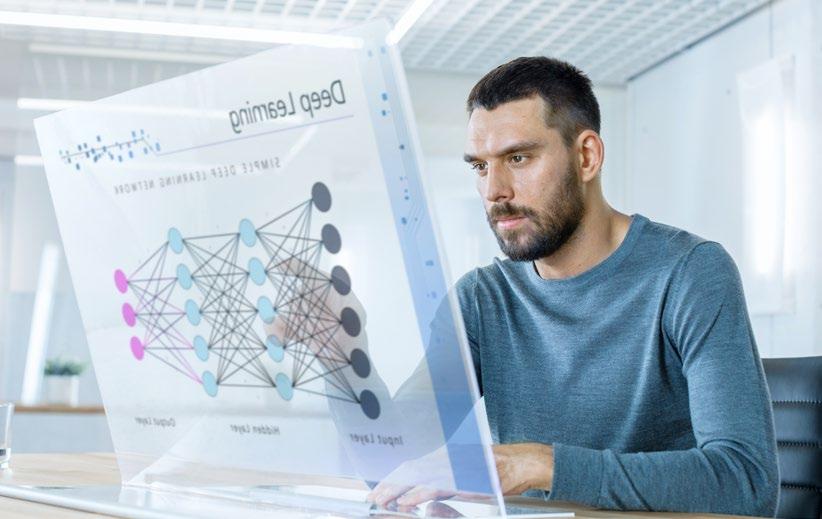
Beispiele von Vorlesungsmodulen im Profil Data Science sind: Machine Learning in Computer Vision Analysis of Text Data Deep Learning
In this specialization you will be prepared to become professional data scientists and, by means of data engineering, data analytics and data services, contribute to the design, development and deployment of data products and data pipelines in companies and public institutions.
Typical examples of course modules in Data Science include: Machine Learning in Computer Vision Analysis of Text Data Deep Learning
Mit einem Industriepartner oder Forschungsteam erarbeiten Sie einen wertvollen Forschungsbeitrag.
In a team with your industry or research partner, you generate a valuable contribution to research.
19
Profil
Electrical Engineering
Electrical Engineering Profile
In diesem Profil erweitern Sie Ihre techni schen Fähigkeiten und erlangen die Kompe tenzen, um komplexe Projekte und technische Abteilungen zu leiten. Sie sind mit den notwendigen Fähigkeiten ausgestattet, um zur Weiterentwicklung des Standes der Technik in den von Ihnen gewählten Bereichen beizutragen. Sie sind in der Lage, Probleme zu analysieren und elektrische und elektronische Lösungen zu spezifizieren, insbesondere in der interdisziplinären Zusammenarbeit mit Kolleginnen und Kollegen der Industrie und Wirtschaft.
Das Profil Electrical Engineering befähigt Sie zur Bearbeitung komplexer Aufgabenstellungen in der anwendungsorientierten Forschung, der Produktentwicklung, der Automatisierung der Produktion sowie im Betrieb elektrischer Geräte und Systeme. Sie sind in der Lage, selbstständig Anforderun gen zu spezifizieren und wenden die geeigneten Technologien, Methoden und Verfahren an, um diese Anforderungen in Produkte für die Praxis umzusetzen.
Nach dem Studium können Sie in verschie denen Tätigkeitsfeldern arbeiten, von Spektroskopen über Herzschrittmacher bis hin zu Kraftwerken, von mobilen Anwendun gen über Internet-Router bis hin zu Radar systemen und Kommunikationssatelliten, von Aufzügen über Roboter bis hin zu Elektroautos in Smart Cities.
In this specialization you are able to expand your technical skills and qualify to manage complex projects and technical departments. You are equipped with the necessary skills to contribute to the further development of the state of the art in the chosen fields. You are able to analyze problems and specify electrical and electronic solutions, especially in interdisciplinary cooperation with colleagues from industry and commerce.
The Electrical Engineering specialization enables you to process complex tasks in the field of applied research, product development, the automation of production as well as in the operation of electrical devices and systems. You are able to independently specify requirements and apply the appropriate technologies, methods and procedures to translate these requirements into practical products.
After graduation you might work in a wide range of different fields of activity, e.g. from spectroscopes to pacemakers to power plants, from mobile applications to internet routers to radar systems and communication satellites, from elevators to robots to electric cars in smart cities.
20
Beispiele von Vorlesungsmodulen im Profil
Electrical Engineering sind:
– Advanced Electronic Design
–
Design of Embedded
Hardware and Firmware
Power Electronic Systems
Signal Processing and Transmission
Typical examples of course modules in Electrical Engineering include:
– Advanced Electronic Design
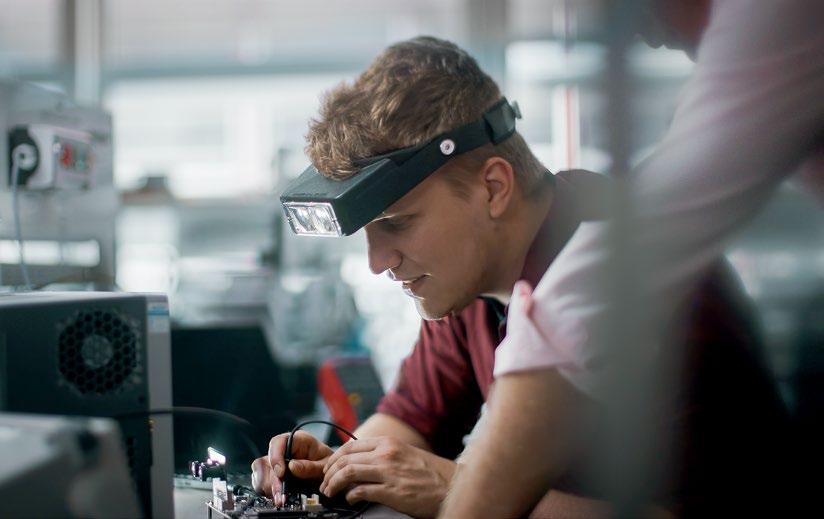
–
Design of Embedded
Hardware and Firmware
Power Electronic Systems
Signal Processing and Transmission
Gestalten Sie das MasterStudium ganz nach Ihren eigenen Bedürfnissen.
Design your degree program to match your personal needs.
21
Profil
Energy and Environment
Energy and Environment Profile
Sie führen im Profil Energy and Environment praxisnahe Forschungs- und Entwicklungs projekte durch und profitieren dabei vom Einsatz modernster Technologien und Werkzeuge. Im Bereich der Energie- und Verfahrenstechnik lernen Sie, wie komplexe Systeme und effiziente Prozesse zur Um wandlung, Speicherung, Bereitstellung und Nutzung von Energie konzipiert, modelliert, realisiert und auch betrieben werden. Themen der Umwelttechnik sind beispiels weise die Analyse, Planung und Ausführung von Massnahmen zur Luft-, Wasser- und Bodenreinhaltung. Es wird nach technischen Lösungen für die Minimierung der Umwelt auswirkungen von Abgas, Abwasser und Abfall gesucht.
Die Themen Energieeffizienz und intelli gente Anwendungen rücken immer mehr in den internationalen Fokus. Mit dem Profil Energy and Environment sind Sie für diesen Bereich bestens gerüstet. Ihnen steht ein breites Spektrum beruflicher Karrieremög lichkeiten offen, sowohl in der Schweiz als auch international. Als Projektingenieurin, Projektleiter oder leitende Mitarbeiterin finden Sie anspruchsvolle Anstellungen in Forschung und Entwicklung, in der Maschinen- und Prozessindustrie oder in der Energiewirtschaft.
Sie werden zu Expertinnen und Experten im Bereich der Energietechnik mit besonderem Augenmerk auf erneuerbare Energien ausgebildet. Sie entwickeln effiziente und ressourcenschonende Prozesse und bewer ten auf umfassende Weise Fragen der konventionellen und erneuerbaren Bereit stellung von Energie. Bei der Umsetzung
In the Energy and Environment specialization you will carry out practical research and development projects and benefit from the use of state-of-the-art technologies and tools. In the field of energy and process engineering, you learn how complex systems and efficient processes for converting, storing, providing and using energy can be designed, modelled, implemented and operated. In Environmental Engineering, you deal with the analysis, planning and implementation of measures for environmental problems related to air, water and soil and look for technical solutions to minimize the environmental impact of exhaust gas, wastewater and waste.
The topics of energy efficiency and intelligent applications are increasingly becoming the focus of international attention. With a master’s degree in Energy and Environment, you are ideally prepared for this area. You will be able to choose from a wide range of career opportunities, both in Switzerland and internationally. As a project engineer, project manager or senior employee, you will find challenging jobs in research and development, in the machine and process industry or in the energy sector.
You will become an expert in the field of energy technology with a special focus on renewable energies. You develop efficient and resource-conserving processes and comprehensively evaluate questions of conventional and renewable energy supply. During the implementation also economic, legal and social aspects will be taken into account.
22
berücksichtigen Sie darüber hinaus auch wirtschaftliche, rechtliche und soziale Aspekte.
Beispiele von Vorlesungsmodulen im Profil Energy and Environment sind: Two-phase Flows with Heat and Mass Transport Advanced Thermodynamics – Process Integration and Pinch Analysis
Typical examples of course modules in Energy and Environment include:
– Two-phase Flows with Heat and Mass Transport Advanced Thermodynamics Process Integration and Pinch Analysis
Bringen Sie das erlernte Wissen beim Arbeiten im Labor ein. Bring your prior knowledge to work in the laboratory.

23
Profil
Mechanical Engineering
Mechanical Engineering Profile
Im Rahmen dieses Profils werden Ihnen alle Tätigkeiten im Zusammenhang mit der Entwicklung, Herstellung, Verwendung und Optimierung von Maschinen, Materialien und Produkten im Industrie-, Forschungsund regulatorischen Umfeld vermittelt. Sie sind in der Lage, Probleme zu identifizieren, zu analysieren sowie selbstständig Lösun gen zu entwickeln und diese erfolgreich in marktfähige Produkte umzusetzen. Sie erstellen und beurteilen mit modernsten CAx-Technologien komplexe Konstruktionen unter Berücksichtigung der geltenden Gesetze, Richtlinien und Normen. Das klassische Maschinenbauwissen wird ergänzt durch eine ganzheitliche Betrachtung kompletter Systeme sowie die Fähigkeit, diese zu bewerten und zu optimieren.
Zur Berücksichtigung der ökologischen und ökonomischen Aspekte wird die Materialund Verarbeitungswahl bereits am Anfang der Entwicklung miteinbezogen. In diesem Zusammenhang analysieren und testen Sie Werkstoffe und befassen sich mit deren Bearbeitungsmethoden. Sie lernen den gesamten Produktlebenszyklus bis hin zur Entsorgung und Verwertung der Produkte in Betracht zu ziehen und Daten bzw. Erfahrungen aus der Anwendung in die Entwick lungsphase einfliessen zu lassen.
Sie erweitern Ihre Kompetenzen zur Bewälti gung der anstehenden Herausforderungen neuer Produktionsprozesse wie beispielsweise Additive Manufacturing und lernen Ihr Wissen über Technologien und Kompo nenten in jeglichen Anwendungsfeldern einzusetzen.
In this specialization you will acquire the skills required for the development, manufacturing, use and optimization of machinery, materials, equipment and products in an industrial, research and regulatory environment. You will be able to identify and analyze problems, to independently develop engineering solutions and to successfully translate these into marketable products. You create and assess complex designs considering applicable standards and applying state-of-the-art CAx technologies. The classical Mechanical Engineering knowledge is complemented by a holistic view of complete systems and by skills to evaluate and optimize them.
In order to account for ecologic and economic aspects, materials and processes are considered already in early development phases of the products. In this context, you will analyze and test materials as well as the associated processing methods. You learn to consider the complete product life cycle up to and including product disposal and recycling, especially the utilization of data and experience from the application phase within the development.
You will increase your competencies addressing upcoming challenges related to new production processes (e.g. additive manufacturing) as well as applying your skills and knowledge in the integration of technologies and components in any given field.
24
Beispiele von Vorlesungsmodulen im Profil
Mechanical Engineering sind:
– Computational Structural Mechanics
– Computational Fluid Dynamics
Manufacturing Technologies Materials and Surfaces
In den Vertiefungsmodulen setzen Sie Ihre Ideen praktisch um.
Within the scope of the specialiation projects, you can put product ideas into practice.
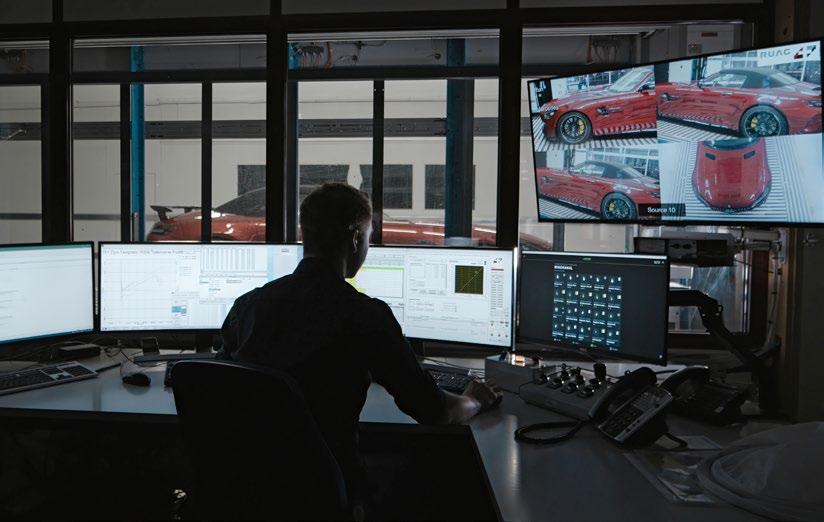
Typical examples of course modules in Mechanical Engineering include:
– Computational Structural Mechanics
– Computational Fluid Dynamics
Manufacturing Technologies Materials and Surfaces
25
Profil Mechatronics and Automation
Im Profil Mechatronics and Automation lernen Sie mechatronische Systeme zu entwickeln, zu modellieren, zu analysieren, zu implementieren und einzusetzen. Sie entwickeln ein tiefgreifendes Verständnis für die Bereiche Mechatronik, Robotik und Automatisierung sowie Mess- und Regel technik und machen sich mit angrenzenden Bereichen wie Signalverarbeitung, Kommunikation, Datenverarbeitung und -sicherheit vertraut. Es werden interdiszipli näre Entwicklungsmethoden für mechatro nische Systeme vermittelt: von der Analyse der Anforderungen bis zum Endprodukt. So lernen Sie komplexe Systeme zu analysie ren und zu bewerten, technische Fähigkeiten zu entwickeln und die Voraussetzungen für die Übernahme einer Projektleitung zu schaffen.
Sie analysieren und entwickeln integrierte und autonome Systeme mit Schwerpunkten in der Robotik und der Automatisierung von Produktionsprozessen. Sie verwenden Roboter und integrieren Sensoren und Aktoren mit intelligenten Reglern in mechat ronischen Systemen. Dabei entwerfen und entwickeln Sie dynamische Systeme und Steuerungen von Produktionslinien sowie integrierte Komponenten von Robotersyste men, die zu autonomem Verhalten in der Lage sind.
Beispiele von Vorlesungsmodulen im Profil Mechatronics and Automation sind:
–
Mechatronics and Automation Profile
Advanced Robotics
Autonomous Mobile Robot Systems
Integrated Automation
Model Predictive Control
In this specialization you will learn to develop, model, analyze, and deploy mechatronic systems. You will develop an in-depth understanding of mechatronics, robotics, and automation, as well as measurement and control technology, and familiarize yourself with related areas such as signal processing, communication, data processing, and data security. Interdisciplinary development methods for mechatronic systems are taught from the analysis of requirements to the final product. You learn to analyze and evaluate complex systems, to develop technical skills and to create the prerequisites for taking over project management.
You analyze and develop integrated and autonomous systems, with a focus on robotics and the automation of production processes. You will use robots and integrate sensors and actuators with intelligent controllers in mechatronic systems. Integrated components of robot systems are designed and developed that are capable of autonomous behavior, as well as dynamic systems and controls of production lines.
Typical examples of course modules in Mechatronics and Automation include:
Advanced Robotics
Autonomous Mobile Robot Systems
Integrated Automation
Model Predictive Control
26
Erkennen Sie die Zusammen hänge von Systemen und ziehen Sie Rückschlüsse für neue Anwendungen.
Recognize the connections between different systems and draw conclusions for new applications of these.
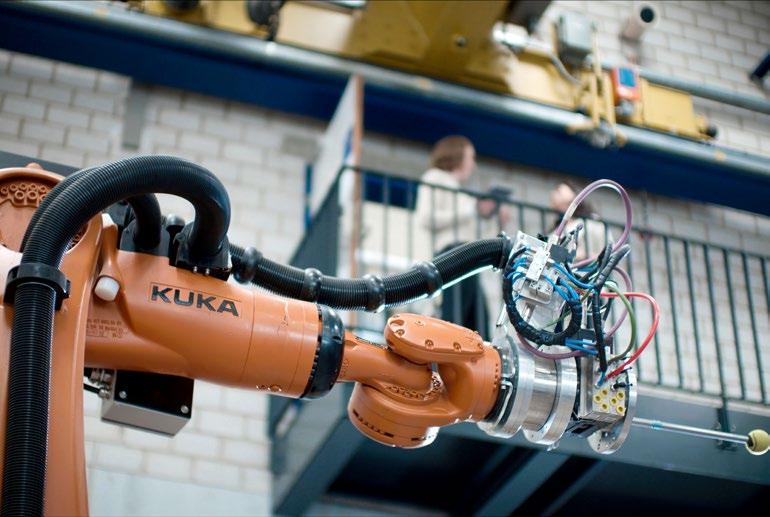
27
Profil
Medical Engineering
Medical Engineering Profile
Das Profil Medical Engineering öffnet Ihnen die Tür, Ihr Ingenieurwissen zur Verbesse rung der Lebensqualität von Patienten und Patientinnen einzusetzen. Sie verstehen die Anforderungen, die an die Medizin produkte gestellt werden, und beherrschen die regulatorischen Vorgaben, denen die medizintechnischen Entwicklungen unter worfen sind.
Um als kompetente Fachperson in der Medizintechnik-Branche agieren zu können, durchlaufen Sie ein anspruchsvolles, multi disziplinäres Master-Studium. Der grösste Teil des Studiums ist den projektorientierten Vertiefungsmodulen sowie der MasterThesis gewidmet. Diese Projekte werden entweder im Rahmen von Forschungsprojek ten des Instituts für Medizintechnik oder in enger Zusammenarbeit mit externen Industriepartnern durchgeführt.
Neben der fachspezifischen Vertiefung profitieren Sie von einer grossen Auswahl an Wahlmodulen aus Bereichen wie beispiels weise Tissue Engineering, Robotik oder Implantate und Prothesen. Weitere Unter richtsmodule beschäftigen sich mit Digital Health Systems, Telemedizin, Machine Learning und künstlicher Intelligenz. Behandelt werden zudem auch die gesetzlichen Anforderungen für die CEKennzeichnung durch die Einhaltung europäischer Richtlinien. Ein besonderes Augenmerk gilt den Risiken, die mit der Verwendung von Medizinprodukten verbunden sind. Im Studium werden entsprechend Methoden und Instrumente zur Risikoanalyse und zum Risikomanage ment entwickelt und angewendet.
The Medical Engineering specialization allows you to apply your Engineering competencies to improve the quality of life of patients. You will learn to understand the requirements related to medical devices and the regulatory framework for the development and use of such products.
To become a Medical Engineering specialist, you will follow a challenging and multidisciplinary degree program. The main part of the study program is composed of two specialization projects and the master thesis. These assignments are either conducted as part of research projects with the Competence Center at the Institute of Medical Engineering or in close cooperation with industry partners. Besides working within the chosen specialization, you will benefit from various elective modules such as Tissue Engineering or Regenerative Medicine but also Robotics, Implants as well as Prostheses. Other lecture modules offered cover Digital Health Systems, Telemedicine, Machine Learning, and Artificial Intelligence. In addition, you will gain profound knowledge of the regulatory framework for CE certification of medical devices through compliance with European directives. Special attention is given to the risks associated with the use of medical devices. Accordingly, methods and tools for risk analysis and risk management are being developed and applied during the degree program.
28
Sie können Strategien zur Erkennung und Analyse von Marktbedürfnissen anwenden und erkennen die Anforderungen sowohl im industriellen als auch im klinischen Bereich. Sie entwickeln eigenständig technische Lösungen, welche die Voraussetzungen für marktfähige Produkte erfüllen.
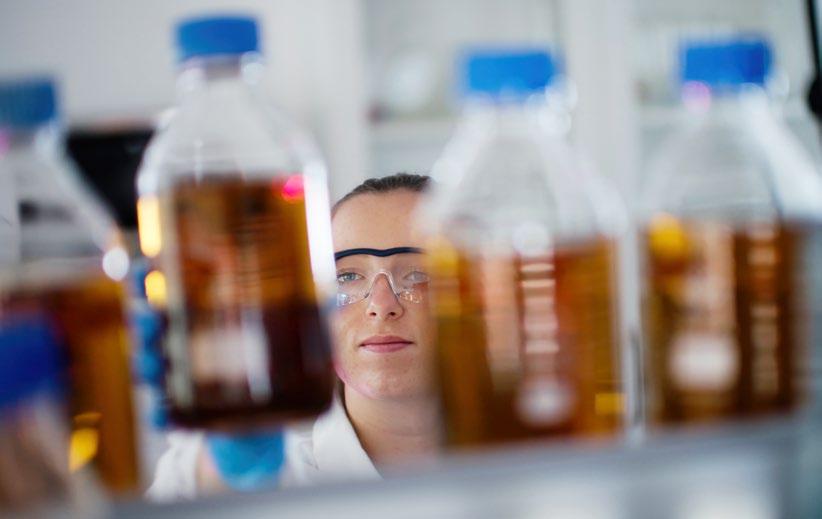
Beispiele von Vorlesungsmodulen im Profil
Medical Engineering sind:
Biomedical Engineering
Digital Health Systems
Medical Diagnostics and Devices
Medical Market Access
You will be qualified to develop and apply strategies to identify and analyze market needs and requirements, both in the industry and in a clinical context. You will independently develop engineering-centered solutions that meet the requirements of marketable products.
Typical examples of course modules in Medical Engineering include:
Biomedical Engineering
Digital Health Systems Medical Diagnostics and Devices Medical Market Access
Bilden Sie die Brücke zwischen neusten Erkenntnissen aus der Forschung und deren Anwen dung im Markt.
Build the bridge between the latest research and their application on the market.
29
Profil
Photonics
Sie lernen im Profil Photonics die am häufigsten verwendeten optischen und optoelektronischen Komponenten kennen und verstehen lichtbasierte Prozesse und Messmethoden. Sie verwenden und kombi nieren diese für spezielle Anwendungen und wissen, wie man photonische Systeme konstruiert und wie diese mit elektrischen und mechanischen Systemen verbunden werden.
Während des Studiums werden die physika lischen Hintergründe von Lasern und ihre Anwendungen in industriellen Prozessen und Instrumenten behandelt. Sie erwerben fundierte Kenntnisse in den Bereichen Bildgebungssysteme, Spektroskopie, Dünnfilmtechnologien und Interferometrie. Darüber hinaus sind Sie mit modernen optischen Sensoren vertraut und können diese beispielsweise in digitale Fabriken integrieren. Die Erzeugung, Steuerung und Umwandlung von Licht, die in der Optoelektronik und der Elektrooptik behandelt werden, sind für die Entwicklung von lichtbasierten Systemen von grösster Bedeutung. Da die Mikrotechnik eine immer wichtigere Rolle bei der Konzeption und Herstellung miniaturisierter Optiken spielt, werden auch Wellenleiter, Mikrooptiken oder Systeme mit hochintegrierten photonischen Komponenten thematisiert.
Nach dem Studium forschen Sie im Bereich Photonics, entwickeln neue Technologien und können die Machbarkeit und Marktrelevanz neuer photonikbasierter Systeme bewerten. Sie sind interdisziplinäre Allroun der und prädestiniert für leitende Positionen mit Führungsaufgaben in den Bereichen der
Photonics Profile
In the Photonics specialization you will get to know and understand the most commonly used optical and optoelectronic components, light-based processes and measurement methods. You will use and combine them for specific applications and will be able to design photonic systems and to interface them with electrical and mechanical systems.
During of the program, you analyze the physics of lasers and their applications in industrial processes and devices. You acquire profound knowledge of fields such as imaging systems, spectroscopy, thin film technologies and interferometry. In addition, you are familiar with modern optical sensors and able to integrate them e.g. in digital factories. Generating, controlling and converting light – topics covered in optoelectronics and electro-optics – are of paramount importance for light-based systems engineering. Since micro technology plays an increasingly important role in the design and manufacturing of miniaturized optics, topics such as waveguides, micro optics or systems with highly integrated photonic components are discussed as well.
After graduation you will conduct research projects, develop new photonics technologies and have the skills to evaluate the viability and market potential of new photonics-based systems. As interdisciplinary allrounder, you will be able to assume senior positions with management responsibilities in research and development, smart manufacturing, industrial process and quality control as well as automation and digital factories (Industry 4.0).
30
anwendungsorientierten Forschung und Entwicklung, intelligenten Fertigung, industriellen Prozess- und Qualitätskontrolle sowie der Automatisierung und der digitalen Fabriken (Industrie 4.0).
Beispiele von Vorlesungsmodulen im Profil
Photonics sind:
Laser and Laser Applications
– Optical Engineering and Metrology
Advanced Thin Film Technology
Typical examples of course modules in Photonics include:
–
Laser and Laser Applications
– Optical Engineering and Metrology
Advanced Thin Film Technology
Laser in Aktion: Optische Systeme sind wichtige Bestand teile industrieller Anlagen.
Laser in action: optical systems are key components of industrial technologies.
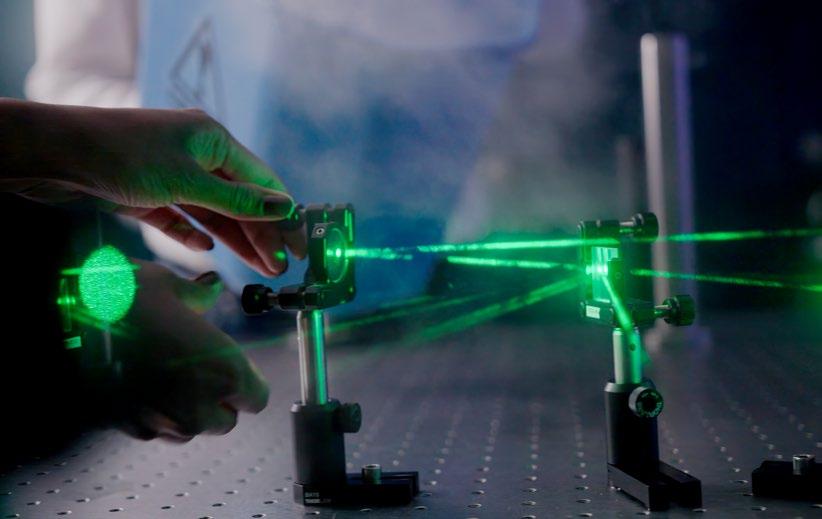
31
Vernetzung
Während eines Auslandsemesters erweitern Sie Ihr Fachwissen und machen kulturell wertvolle Erfahrungen. Bei dessen Organisation werden Sie unterstützt. Es ist möglich, Theoriemodule an einer anderen Universität zu besuchen und dort auch Vertiefungsmodule oder sogar die Master-Thesis zu verfassen.
Absprache mit der Studiengangleitung können Sie Module an einer der aufgeführten Partnerhochschulen besuchen. Weitere Informationen finden Sie auf hslu.ch/ea-international
During an exchange semester you will expand your skills and knowledge and gain intercultural experiences. We will support you in organising your stay abroad. It is possible to attend theory modules at another university or even complete a specialization project or the master thesis abroad.
consultation with the head of the degree program you may attend certain modules at one of our international partner universities. Find more information on hslu.ch/ea-international
Partnerhochschulen im Ausland Cooperations: Partner universities abroad
Beuth Hochschule für Technik, Berlin, Germany
California Polytechnic State University, USA
Coventry University, United Kingdom
NTNU Norwegian University of Science and Technology, Trondheim
Eindhoven University of Technology, The Nether lands
Fachhochschule Technikum Wien, Austria
Halmstad University, Sweden
Hochschule Darmstadt, Germany
Hong Kong Baptist University, Hong Kong
KTH Royal Institute of Technology, Sweden
Pôle Léonard de Vinci Paris, France
Purdue University, USA
Roma Tre University, Italy
Stellenbosch University, South Africa
Technological University Dublin, Ireland
University of Edinburgh, United Kingdom
Tsinghua University, Beijing, China
University of Bergamo, Italy
University of Southern Denmark, Odense, Denmark
University of the Sunshine Coast, Australia
32 Kooperationen:
1
2
3
4
5
6
7
8
In
In
Internationale
International opportunities 1 7 5 3 19 4 2 6 18811 1312 14 9 20 17 15 16 10 9
10
11
12
13
14
15
16
17
18
19
20
Luftaufnahme des Campus in Horw bei Nacht.
Aerial view of the campus in Horw by night.
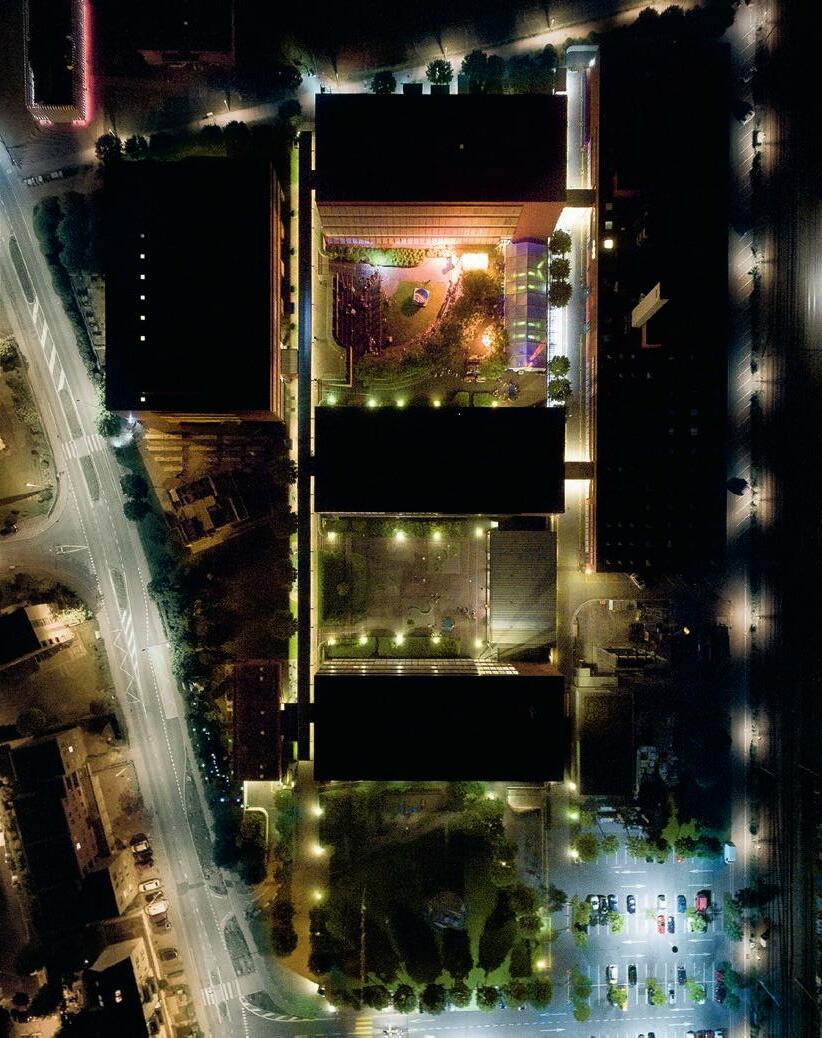
Wissenswertes rund ums Studium Useful information
Anmeldung
Anmeldungen zum Master-Stu dium werden laufend entgegen genommen und geprüft.
Application
Applications for the Master degree program will be considered at any time.
Wohnen
Günstigen Wohnraum und Unterstützung bei der Suche nach einem Zimmer finden Sie auf: stuwo.ch/luzern wgzimmer.ch
Accommodation
Find inexpensive accommodation and support in finding a room: stuwo.ch/luzern wgzimmer.ch
Hochschulsport
Bei uns profitieren Sie von einem umfassenden Sportangebot: unilu.ch/uni-leben/sport
University Sports
Lucerne UASA offers an attractive and wide-ranging sports program: unilu.ch/en/life-at-university/ sports/
Anstellung
Parallel zum Teilzeitstudium bieten wir Ihnen die Möglichkeit einer Anstellung im 50-Prozent-Pensum an einem Forschungszentrum der Hochschule Luzern. hslu.ch/de-ch/technik-architektur/ forschung/
Employment
In parallel to the part-time study model, we offer the possibility of part-time employment (50%) at one of the research groups at the Lucerne University of Applied Sciences and Arts. hslu.ch/en/lucerne-school-of-engi neering-architecture/research/
Theoriemodule
Das MSE-Studium ist Teil einer schweizweiten Kooperation der Fachhochschulen. Daher finden die Vorlesungsmodule an zentralen Standorten der Schweiz statt. Für Studierende der Hochschule Luzern ist dies meist in Zürich direkt beim Hauptbahnhof.
Theory modules
The MSE degree program is part of a cooperation among the Swiss universities of applied sciences, which is why lectures are held at central locations in Switzerland. Students of the Lucerne University of Applied Sciences and Arts mostly attend lectures in Zurich, directly by the main station.
Stipendienberatung
Informationen zu finanzieller Unterstützung und zu Darlehen finden Sie auf: hslu.ch/stipendien hirschmann-stiftung.ch helmut-fischer-stiftung.ch studienstiftung.ch
Student counselling Find information about funding and student loans: hslu.ch/stipendien hirschmann-stiftung.ch helmut-fischer-stiftung.ch studienstiftung.ch
34
Die Hochschule Luzern – Technik & Architektur Lucerne School of Engineering and Architecture
Studienbeginn
Das MSE-Studium können Sie sowohl im Frühlingssemester (Mitte Februar) als auch im Herbstsemester (Mitte September) beginnen.
Commencement of studies
You can start the MSE degree program in the spring semester (mid-February) or in the fall semester (mid-September).
Praxisorientierung
Wir machen Sie fit für die künftige berufliche Herausforderung. Die Zusammenarbeit mit Industrie und Wirtschaft beginnt schon früh im Studium und zieht sich bis zur Master-Thesis durch.
Practical focus
We provide you with the skills for your future career. Students closely collaborate with real-life businesses throughout their degree program, including the master thesis.
Campus
Lust auf Berge und See? Oder auf pulsierendes Stadtleben? Wir
bieten beides. Unser Campus ist zentral gelegen und gut erreichbar. hslu.ch/ta-standort
Campus
Are you more of a mountain or a city person? Our campus is conveniently located and easy to reach from both rural and urban areas.
hslu.ch/ta-standort
Zulassung
Für die Aufnahme in den Studien gang sind ein sehr guter Bachelor abschluss und Englischkenntnisse auf Stufe C1 des europäischen Referenzrahmens erforderlich. Ausländische Studierende im Profil Civil Engineering müssen Deutschkenntnisse auf Stufe C1 vorweisen.
Admission
Very good marks in the bachelor degree and English language competencies on level C1 (Common European Framework of Reference for Languages) are required for admission to the degree program. Foreign students in the profile Civil Engineering must have German language skills at C1 level.
Spin-off – Start-up
An der Hochschule Luzern unterstützen wir Sie dabei, Ihre Unternehmensideen umzusetzen und sich selbstständig zu machen. hslu.ch/smart-up
Spin Off – Start Up
At the Lucerne University of Applied Sciences and Arts we support you in implementing your business ideas and setting up your own business. hslu.ch/smart-up
Flexibilität
Bei uns studieren Sie nach Ihren Bedürfnissen: Das MSE-Studium
umfasst 90 ECTS und kann im Voll- oder Teilzeitmodell absolviert werden. Die maximale Studien dauer beträgt sieben Semester.
Flexibility
Build your curriculum to fit your personal needs: the MSE degree program comprises 90 ECTS and can be completed full-time or part-time. The maximum duration of your studies is seven semesters.
35
Do you have any questions?
Our Bachelor & Master Secretariat will be happy to assist you: Lucerne School of Engineering and Architecture Technikumstrasse 21 6048 Horw
T +41 41 349 32 07 mse@hslu.ch hslu.ch/mse
Follow us! facebook.com/hslu.ch instagram.com/hslu_ta instagram.com/hslu_mse Blog: hub.hslu.ch/ta-experience
Further information about the Master of Science in Engineering
10-2022

















